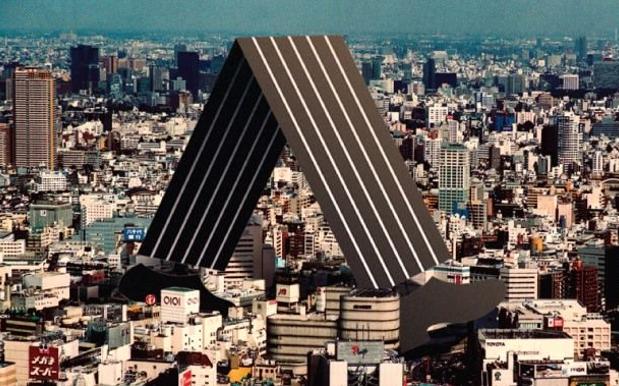
Comprised of one Kill, a White Stripe, a Queen of The Stone Age and a Greenhorne (or two Raconteurs, a Kill and a Queen Of The Stone Age depending on who you talk to) incendiary super-four-piece The Dead Weather have managed to release two albums in two years while sidestepping mythical industry pitfalls like the sophomore slump and underwhelming super-group. It’s a trajectory that suggests a mountain of future output, legions of fans and a small pocket of begrudging bandmates (Meg, Jamie and Josh) but no one knows how the project will unfold, not even The Dead Weather themselves. To try and predict the future Pedestrian recently caught up with Dead Weather linchpin Jack White to talk new beginnings, recreational archery and the creative inspiration of cinema.
Pedestrian: Hey Jack. How are you?
Jack White: Good, how are you?
Yeah not too bad. How’s your trip in your Australia been so far?
It’s been very, very nice because there were bats flying all over Sydney, and I’ve never seen that before in a major metropolitan area so I think that’s pretty interesting at this time of year that bats swarm this town. It’s unbelievable.
Unless you want to discuss bats which I’m totally cool with, let’s talk about the second album. What was the reason in your mind you think for such a quick turnaround because it’s pretty quick isn’t it.
Well I don’t know. There’s a lot of reasons, one of which the songs just came out. They just really, I mean, they came out of us. We’re really inspired right now. We’re working together in our little world. What we’re doing is explosive to us and it feels so connected to the blues. I mean our only problem in this band is to battle preconceptions from what people expect from us; the singer from the White Stripes and the singer from The Kills and yes, the guys from The Queens of the Stone Age and The Raconteurs. It’s the only battle we have because if we were a brand new band, with the music that we’re making, nobody would think twice about it. You know, they would take it immediately. When people come to the live shows they’re like feeding that electricity and that’s just burning gasoline for what’s coming off the stage and I can’t wait to just take it to all the places that we can before it’s time to go back to these other things we’re doing. So putting out another album this fast is incredible and on top of that, we wouldn’t do it just to do it and well the songs just feels so powerful to us.
You mention the power you feel in The Dead Weather’s music, at what point does this become your main gig or how do you compartmentalize your time between different bands?
I don’t know, I think that’s everybody’s worry as well, what I was saying before is that everyone’s always kind of concerned about that. I really don’t understand why that’s such a concern because actors seem to have that freedom, you know, they can make a film, then in the next six months they’re making another film, they’re playing a totally different role and nobody questions it. We’re so used to musicians doing one thing for the rest of their fucking life. I mean, okay you play the guitar, I fucking get it forty-five years later. You know what I mean? Sometimes I want to see people just try something else for a second, to see what else is going on, what else they can create, and put out there. It’s amazing how much we’ll put up with repetition and it’s nice to try to shatter that at times for your own self as an artist and to challenge yourself to do something else. I mean I haven’t played drums in a band since I was nineteen years old and to get on the stage and play drums again is an incredible challenge. I have to try to sing and play drums at the same time etcetera, etcetera. These are the things that are challenging me. The easy thing would be to go onstage and play all the White Stripes hit songs and call it a day and collect my money and go home and go on vacation. I mean, I almost feel like people almost want to reward you for taking the easier way out instead of the other way around and I think that shouldn’t be the case for artists.
So in that reaction against repetition and this might sound weird but the perception of Jack White as a person – what’s been the most liberating aspect of that?
It’s liberating to shatter your own iconic vision of yourself and to people in front of you and to start all over again. I mean I played in a club last night for two hundred people. I mean I was playing in front of 200 people when I was nineteen, you know I don’t need to do that. I don’t have to do it. I can play in a place of ten thousand people probably, I don’t know, I have no idea what goes into that but I just know that I feel like I’m still getting in a van and taking my amp out of the back and playing in front of a few people and that feels extremely good to me. You know if you’re a painter that uses a brush then all of a sudden you’re painting on a computer instead of a canvas; you’re still painting on a canvas. Likewise if you’re creating music to share with other human beings it doesn’t matter what the arena of it is, you know.
So has this new perception changed your process to songwriting and gigging and everything else?
It’s a re-evaluation of it on a daily basis for me. This album we were writing, the four of us were writing in a room together and I’m the drummer and I’m writing things on synthesizer and a guitar and piano and I go back to play the drums; someone else will pick up an instrument that they don’t really play and we’re not talking about this, we’re not saying this is what we should do. It’s just happening. We’re in a room together making something happen and that’s sort of, it’s strange how that’s almost against the rules – to create in that fashion from the stamp that we come from, that’s incredibly invigorating.
So it’s not preconceived at all? It really is a reflection of the four of you at a very specific moment in time…
Yeah I think I wouldn’t be too proud of things if I had said, called everybody up and said, “Listen Alison, Dean, Jack, I’ve got all these songs written. I want to create a new band, it’s called The Dead Weather. You’re going to do this, you’re going to do that and we’re going to go on tour etcetera, etcetera.” If that was the circumstance, I wouldn’t be very proud of that at all. I would be very suspect if I was a fan of what I had done before, but that becomes a challenge to explain to people. That’s really not what happened at all. It’s really been a stumbling accident for all of us to show up in a room together and all of a sudden a band was created, a new album, many songs are written and they are songs that didn’t exist before and that’s what’s important to me. When something gets out in the world that’s been created that didn’t exist before. That’s interesting because that means I’ve taken a step somewhere in some sort of direction.
Yeah the evolution of someone’s creative output is a really interesting idea I think because as a musician it can extend to new genres or even whole new mediums. Has this experience really tempted you to keep collaborating in the future and as you said, keep finding new experiences and new ways to do things?
The difficult part for me is to know what isn’t a production of mine, what is something that I’m a member of or something I’m producing. I mean they all sort of blend in together and they’re all camouflaged. I don’t know how different this is than when I worked for Loretta Lynn, you know? Writing in a room together, that’s the way I work with the band and Alison – in the room together. We could have called this album Alison Mosshart, you know, I don’t know. The same as calling the Loretta Lynn project Loretta Lynn. Or we call The Raconteurs, The Raconteurs and not Brendan Benson and Jack White or something like that, you know what I mean? It’s about how you package it and sell it. People sort of trip over the notion of what it all is supposed to mean. So in the end they’re all sort of productions or things I’ve directed, you know. I always think of the albums like little films, you know, directing songs like they’re little films as a producer. Whether I play drums on them or guitar on them or don’t or someone else does, it’s about being involved in making it happen I guess.
It’s interesting that you’ve used two film analogies in two different contexts since we started talking. First with the actors playing different roles and then comparing a Producer to a Director – is film a medium you draw a lot of inspiration from?
Oh, very much so. I wanted to be a director when I was younger and I just started working on some productions, some commercials for car companies when I was a teenager and early twenties and I felt it was so difficult to actually make something on film and put it all together. You need a hundred people; you need tons of money. Music was something I could record at my house and get it released on a tiny record label somehow and get it out there and go play shows. I didn’t need a thousand people or a million dollars, it was a pawnshop guitar, you know, and a rusty van and you are ready to go. So it’s only until now, the new Third Man Records building that I’ve built in Nashville is our headquarters and we have a studio and a photo studio and we also film videos there too. We film many things there from the Dead Weather video. I shot “Cut Like A Buffalo” there, for example.
And now that you might have a million dollars and a hundred people are you exploring ideas as a film Director?
Now I’m starting to finally direct things I didn’t have time to do in the past and now I have a place to do it and the means to do it so I’d like to start directing more the next couple of years.
Feature films as well or just video clips?
Yeah I would love to do features in the future, it’s something I would definitely like do.
Yeah right. So can you tell us about what’s happening with new White Stripes output?
I don’t know, I don’t really plan that far ahead. It’s – I didn’t know we were going to make this second Dead Weather record a couple months ago so I don’t really know what to say about that. It could quite easily happen, it might happen as soon as we get back from Australia, we could be recording by May or maybe in the fall or maybe next year, I really don’t know.
Do you compartmentalize your writing? Like do you write with a particular band in mind or is it just intuitive?
You have to sort of listen to the songs and let them tell you where to go with it, it’s very difficult to sit down and say “I’m going to write a White Stripes song”, “I’m going to write a Dead Weather song”, that’s hard to do. It’s like saying; “I’m going to sit down and write a hit”. You can’t really do that, you just sort of write and do what inspires you and you realize, well, this song doesn’t really make sense for The Dead Weather, maybe it needs to go somewhere else because it’s not really, it doesn’t work in this environment. You just listen to it and they’ll tell you where to go.
Your wife has also recently released a video as well. Can you tell us about her project?
Yeah that video that just came out is an acoustic version of her title track off her album and there’s a video coming out where the full band joins in with her. Those were both recorded live at Third Man. That’s where we did those videos and we have a eight-track recording booth there now so that was all recorded analog tape and that’s why it just sounds so full, you know, it sounds so real. I can’t wait for people to see the next installment of that video; it’s going to be great. She’s an incredible song writer.
You must be so proud…
She should have been doing it years ago. It’s hard for people, the connotation for a model is to not allow them to breathe and be creative, so she defied that for years in The Citizen’s Band – she’s been in all sorts of projects. She’s just a natural musician.
And can you explain a day in the life of Jack White when you’re back at home with Karen?
No I don’t think I could give you one; it’s different every day. I’ve realized that a couple of years ago that when I was younger it seemed like the days were all the same and the same thing was trying to get accomplished and same motives as I woke up In the morning. Now my motives are different every day. I wake up and realize, wow the motives I’ve had for the last four days every day, I’ve had a completely different outlook and a different connotation to them. I was trying to build this thing of wood and metal yesterday and now today I’m trying to piece together something visual out of tape and editing and it’s so great to have that problem that there’s too much going on and I don’t have enough time to do it all. I like that problem.
You’ve obviously undertaken a multitude of creative endeavors and you’re branching out into film as well…what do you do you that that doesn’t require any creativity? I mean, do you have time for recreation?
Yeah I mean I do it all the time. I don’t know, it’s just, they’re ranging, I’m interested in a lot of things but I like to, you know, archery, I like archery a lot. I also like reading books. Watching films and documentaries, I like that a lot too.
Well, what can people expect from a Dead Weather show now?
Well we’re just starting to debut slowly, more and more songs from the new album and they’re just taking on a whole new life and people don’t really know that yet so it’s really interesting to play that to a virgin crowd every night. So we’re really getting a lot of inspiration from that.They’re already changing. They’re already changing, and it hasn’t been released yet so…
So do you use the feedback and crowd reaction as kind of metric for how good the songs are?
A little bit. It’s a strange environment now, with the internet when you play a song live it’s on YouTube the next morning and people can use that to compare to the studio recording very quickly and we didn’t used to have that opportunity as a fan so it’s territory they have to consider like when you put something out there, you risk giving them something to it compare to. I don’t know, in the end it doesn’t really stop us. I’ve never really been stopped by anything. What’s said or what the comments are when the crowd feeds back something, you really know to work off of it and you go farther with it. You’re sharing with them so you have to keep in consideration how they’re feeling about it.
And what for you is the main difference between this LP and Horehound?
Oh the songwriting has intensified, the music is heavier, darker and it’s more full of the blues, even more so than we thought it could be. And we saw a lot more collaborations with the four of us you know sometimes it was one or two people on the first album and now a lot of these songs there are all four people writing on and it’s just, we’re obviously going down a path we’re really inspired by, really getting something very heavy out of being in this band together.
Is there a different spirit this time round? Like did the initial album make this process easier? Because it sounds like it had a really profound effect on you.
It’s even better, it’s just even better. You know, when you’re walking and stumbling into a thing like this, a new band, we didn’t even realize what was going to happen. It’s hard to know what the next step is or where it’s going to be. Maybe it s just one record and we go back to what we were doing or go on to something else, I don’t know. But now we’re into two albums in less than a year, that’s a really inspiring thing to think about; that doesn’t happen very often so obviously there’s some good happening here.
Well Jack I that’s our fifteen minutes, thanks for taking the time to speak with us.
Thanks man.



